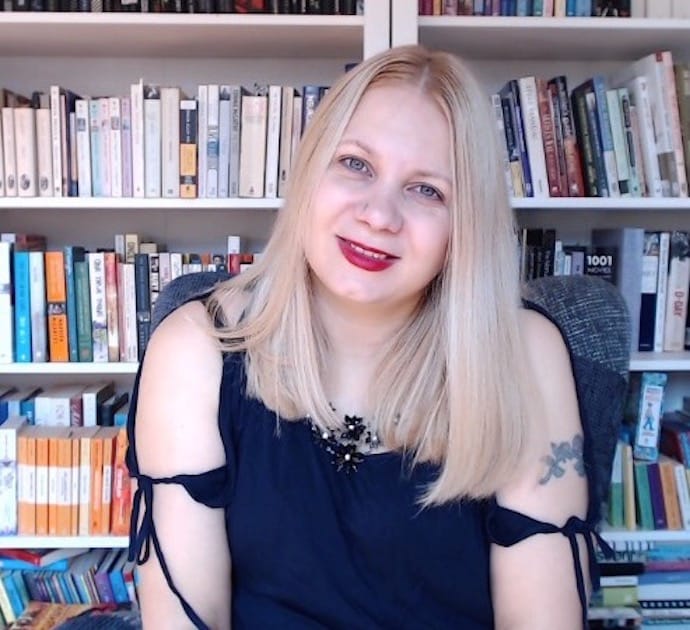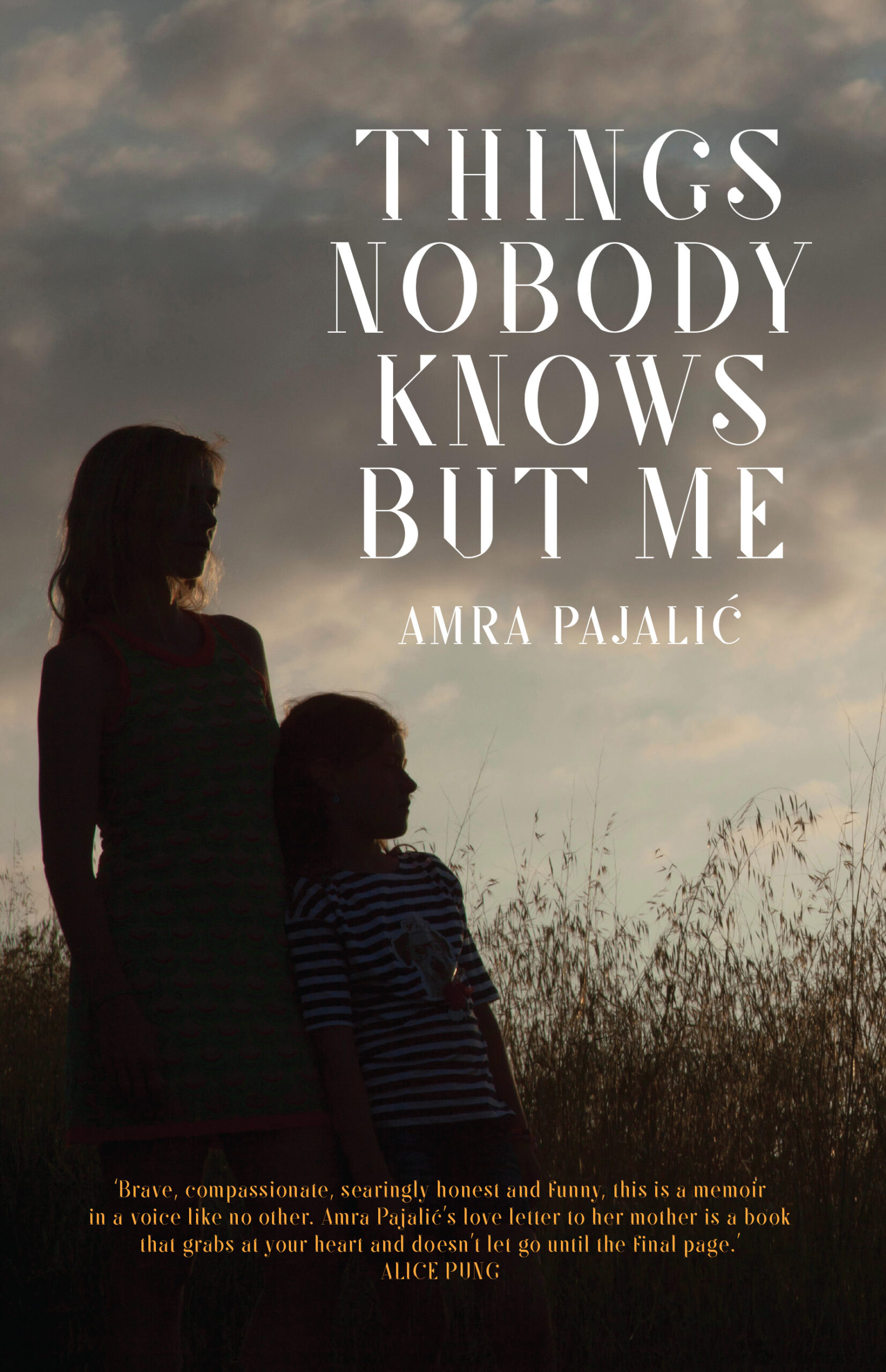
Writers Victoria’s Tara Mitchell talked to Amra Pajalić about her upcoming memoir ‘Things Nobody Knows but Me’.
‘When she is four years old Amra Pajalić realises that her mother is different. Fatima is loving but sometimes hears strange voices that tell her to do bizarre things. She is frequently sent to hospital and Amra and her brother are passed around to family friends and foster homes, and for a time live with their grandparents in Bosnia.’
Your debut novel, ‘The Good Daughter’ won many accolades, including the Melbourne Prize for Literature’s Civic Choice Award. How did this recognition influence the decision to write your memoir?
I had always wanted to write stories about growing up with my mother as a memoir, but I didn’t have the confidence to tell the story, and I was too self conscious about exposing myself. When The Good Daughter was acknowledged with prizes it made me feel confident that I had the skills to tell this story and that there was a readership out there. I’m glad I wrote my memoir at this point in my life when I’m not so concerned about self image and am more open about my life. When I tried to write this book in my early twenties I was very judgemental of my mother’s decisions, whereas in my thirties I had more empathy and understanding about the way life throws curveballs at us.
Your mother was diagnosed with Bipolar Disorder, which had a massive impact on your life. Mental illness is still surrounded by stigma and often not talked about. What would you like readers to learn from your own family experience?
Bi Polar is an illness that is characterised by manic phases when the sufferer has no sleep, has lowered inhibitions and does and says bizarre and difficult things. Once the mania passes, usually when medication is administered to break them from this phase, they then experience depressive lows, low energy, inability to be motivated and they can get suicidal. The difficulty with mental illness is that the person looks and acts like there is nothing wrong so, for example, when my mother says and does hurtful things, it’s hard for people to understand that this is a manifestation of her illness. In a lot of instances my mother doesn’t even remember what she said or did during these phases, and it is up to her family and friends to forgive her and not judge her by these episodes. I would want readers to show compassion and understanding to anyone they know who suffers from Bi Polar and not judge them by their worst moment. Instead they need to wipe the slate clean and understand they cannot be held responsible for those periods.
What were the greatest challenges for you in writing ‘Things Nobody Knows But Me’?
The greatest challenge was finding a way to tell my mother’s story. I extensively interviewed my mother and asked her version of events. It was interesting to compare how I perceived certain things as a child, and then hearing her perspective realising that she was as much a victim as I was. For example, when we were living in Bosnia my parent teacher interviews scandalised my grandparents who put pressure on my mother to take me in hand. One day I was learning the timetable and I wanted to go out and play. After nagging Mum for ages she let me go, but with a warning, she’d test me when I returned and for every mistake I made she’d smack me. When I returned my Mum tested me and I made eight mistakes. My grandmother handed Mum a rod and Mum beat me on my bare bum. When talking to Mum she told me she didn’t want to do it and she cried afterward, but my grandmother was in charge of both of us.
It takes a great deal of courage to write a memoir. What questions would you suggest a writer ask themselves before considering writing their own memoir?
The most important question to ask is why? When writing a memoir you have to interrogate why people did certain things. It’s usually very hard to find an answer, because people are complex and we don’t always act in a way that is logical, but as memoirists we need to make an attempt to understand and get that across. In certain incidences with family friends who attempted to help us I put forward theories. I don’t know if these are correct, and I stated this, but I think it’s always good to explore those questions with the reader and engage in that process. But you also need to realise that not everything can be explained and that a memoir is just a snapshot of a life and certain memories, and that memories are always shifting. Even today Mum shares her memories and I want to include them in my memoir, but it’s too late. That book is a testament to a certain time and place.
For our aspiring memoirists, what memoirs do you recommend they read as exceptional examples of the genre?
Alice Pung’s Unpolished Gem was a great example of writing a memoir about growing up in a multicultural background. I used that to guide my structure and was going to finish my memoir when I was 17 years old, but then realised I needed to include an epilogue to transition the reader to my forty-year-old self. I loved Alice Seobold’s Lucky which was a memoir about her being raped as 19 year-old virgin. It was so hard to read, but she didn’t shy away from including difficult details. One of the moments that stuck in my head was when she was talking to her parents after the rape and she was hungry and she made this off-colour joke that made them all laugh. It was great to see how amidst moments of tragedy and hardship there are moments of lightness and that’s what I aimed for in my memoir.
Click here for more about Amra Pajalić and her memoir ‘Things Nobody Knows but Me’.

